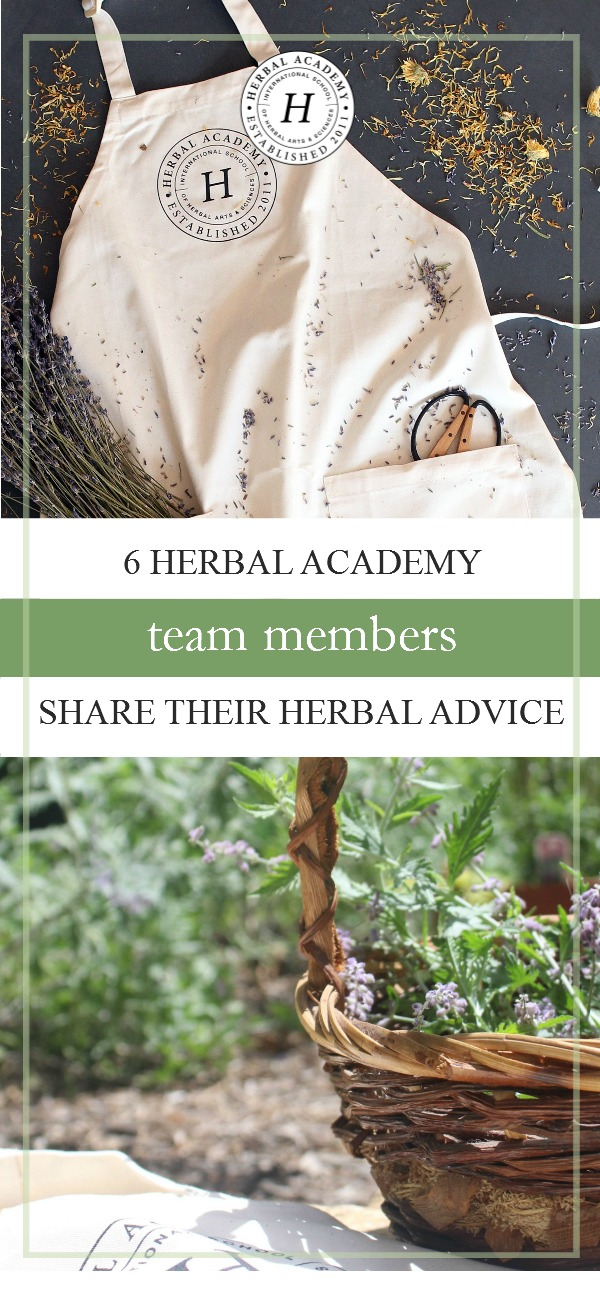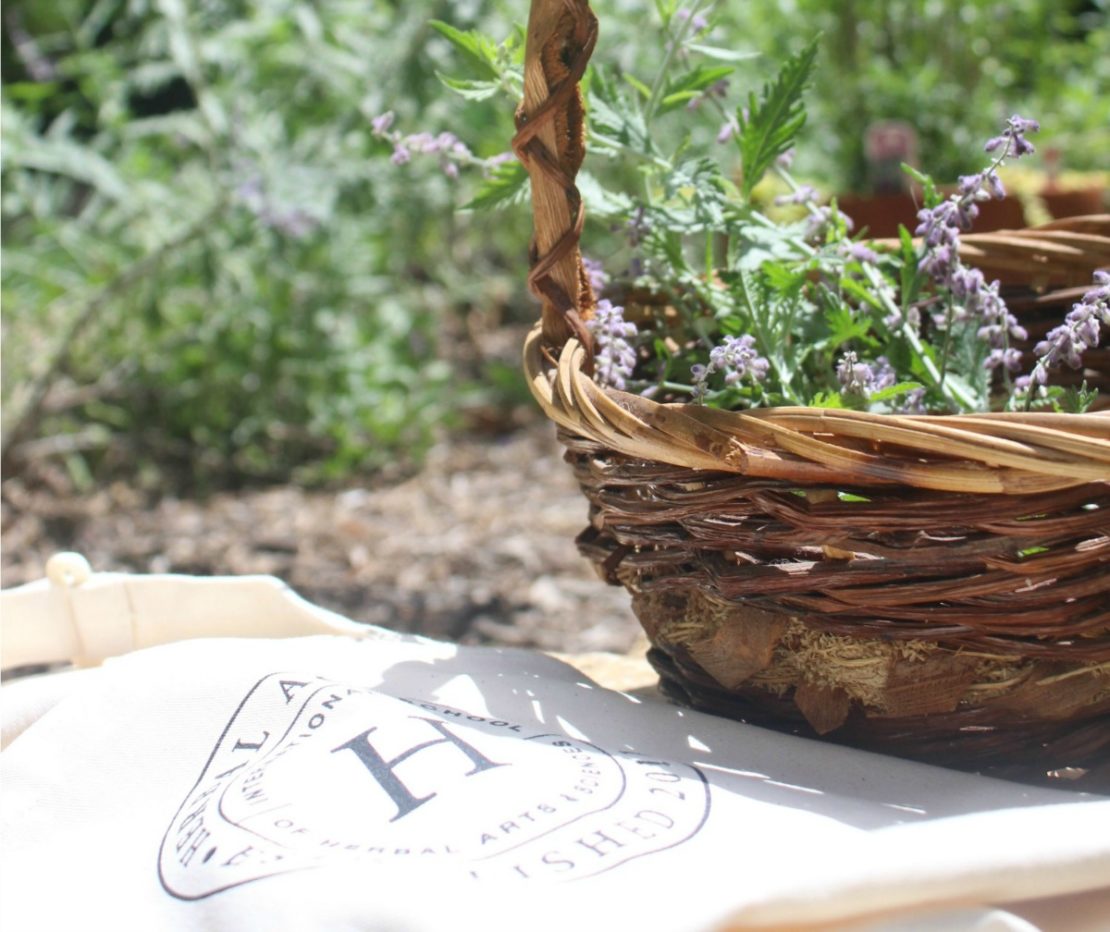
Herbal Q&A: 6 Herbal Academy Team Members Share Their Herbal Advice
Have you ever wanted to sit down with a group of herbalists and pick their brains? No matter where you are in your herbal journey, getting perspective and insight from other herbalists can be invaluable as you navigate on your herbal journey.
Recently, several of our Herbal Academy team members sat down for an herbal Q&A session. These team members come from a wide variety of backgrounds and all practice herbalism in different ways (you can find out more about them on our Team page). We asked them a series of five questions, and each one has answered with their own personal, unique answers.
Whether you’re a beginner or a seasoned herbalist, there’s something for everyone in this herbal advice post!
Herbal Q&A
1. What advice do you have for someone just starting their journey into herbalism?
Ayo Ngozi: Remember that it’s okay to be a beginner. There’s no end to the amount that we can learn about plants and herbalism, and we don’t have to learn it all at once.
Angela Justis: Start simply and take your time. Don’t expect too much of yourself! I have found that gratitude and being in the moment with the herbs and the learning is what really speaks to me and helps me learn. There is a lot of information out there, and it can be easy to get overwhelmed. So take a deep breath and enjoy the process.
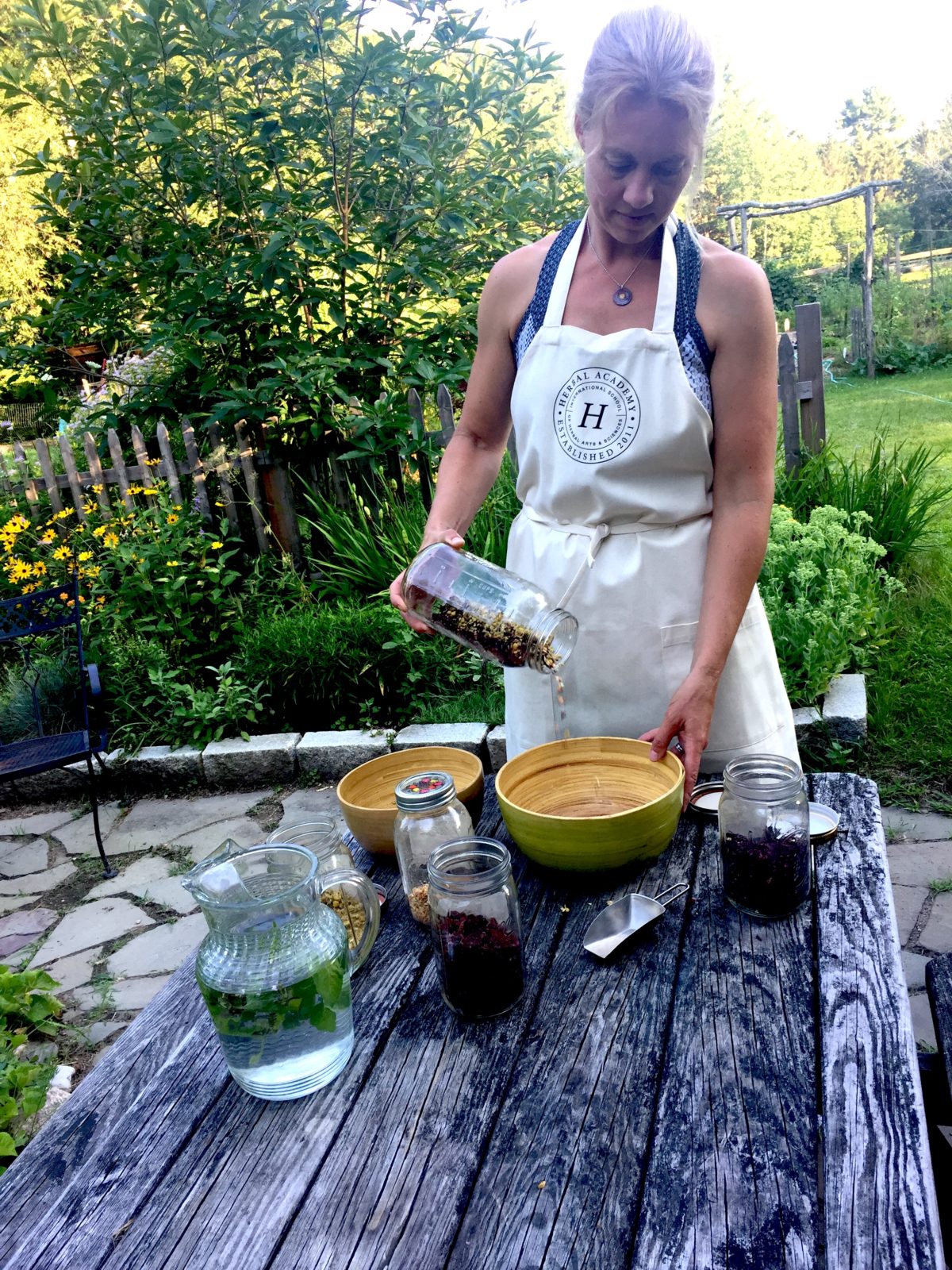
Jane Metzger: Remember that herbalism is a big topic and allow yourself to learn it at the pace that feels right for you. I think it’s safe to say that many new herbal students are just absolutely jazzed and inspired when they start learning about herbalism. “The more you learn, the more you realize you have to learn” is definitely true here, and that is part of the beauty of the journey. It is like the many layers of petals of a rose opening—there is always another level. Not to mention another herbal tradition, or another plant…so it is also not uncommon to get overwhelmed by all there is to learn. Take it slow, follow what interests you or what you want to integrate into your daily life—that can be a really helpful framework to guide your studies. Spend time with the plants. First-hand experience with the plants is one of the best teachers, so study their botany, drink them in tea, and observe their smell, taste, energetics, and interaction with your body, study them in books—the plants are a wonderful guide, one at a time.
Marlene Adelmann: When the books you have been reading leave you wondering what to do next, seek out a good quality herbal program. I would want to interject here that the Herbal Academy offers the best programs ever created, but as good as our programs are, you need to find the right one for your needs. The program should offer you what you are interested in, and there should be a support system or community that you can tap into for guidance. As we developed our online programs, we began to understand that this type of learning was extremely valuable because of its immediate availability to students everywhere. A couple of clicks and you have herbalism at your fingertips! Students are also allowed to work at their own pace, and that’s an incalculable asset. In our chosen medium, we can use various platforms that help us offer the material in a palatable format, one that is created with visuals, art, photos, graphics, and videos. We are keenly aware that an online course can not provide a student with the natural world that they are studying, but we can do the next best thing by ramping up our visuals and identification tools to serve as a magnifying glass that will guide them when they are observing and working in the environment.
We were also able to bring many voices to our courses that would not have been possible otherwise. Mentors rule! We all have questions, and we need to have someone who we can go to with our questions. Finding a mentor is a wonderful way to support your studies. When I first decided to formally study herbalism by signing up for a course, I had no idea that the field of herbalism was as vast and complex as I quickly gleaned. I would also tell anyone who wishes to delve deeper into the art and science of herbalism to be prepared for the wow factor on a daily basis!
Erika Galentin: This is not necessarily a straightforward path. Being an herbalist can mean many things, whether growing, making products, seeing clients, teaching classes, writing, etc. It will be important that you don’t limit yourself to just one narrow definition of ‘herbalist’. Also, and most importantly, never stop studying and never stop learning. Remember that the paradigm that governs over us is not the same as the majority of the population, medical or otherwise, is used to. You will need to remain well-versed in order to communicate, substantiate, and justify the supportive role that herbalism can play in everyone’s lives.
Meagan Visser: When you first get started on your herbal journey, you’re excited and full of passion. You want to immerse yourself in all things herbal and learn to do it all. However, herbalism is a vast art and science, and it’s impossible to do and learn everything quickly. My best piece of advice is, if you have the money to invest in some introductory herbal books or an introductory herbal course, do it. You’ll learn so many foundational things that will set you up for future success with those resources. If those things aren’t an option, I’d suggest trying to focus on one area or one topic at a time in order to really gain an understanding of that topic and then branch out from there. And, if you can connect with an herbal mentor who is well-versed in that area… even better!
2. What are your favorite herbal tools?
Ayo Ngozi: A good hori-hori (digging knife), digital scale, and small tincture press. Oh, and Mason jars!
Angela Justis: My favorite tools are: (1) My mug sized strainer. It sits right on top of my mug or canning jar (whatever receptacle I straining my tea into) and makes it simple to strain the herbs out of my brews. I use it almost every day and sometimes multiple times per day! (2) My tea kettle whistling for heating water and reminding me to come back and pour the hot water when it is ready! (3) Canning jars for brewing and storing herbal creations. (4) My mortar and pestle. I love hand-grinding herbs so I can watch them break apart and transform while inhaling delicious fragrances fills me with appreciation for the botanicals I am working with. (5) My bathtub! I just love herbal baths and find great soothing in soaks!
Jane Metzger: My garden for growing herbs, my gathering basket for harvesting in the garden or fields, and my camera. I really value spending time with plants in-person and derive so much joy from that relationship. And honestly, my computer—not because I love staring at a computer screen, but because writing really helps me integrate knowledge in a way that makes sense to me. It allows me to combine my love of herbalism with my love of writing. My favorite way to enjoy herbs is in teas, so add a mason jar, strainer, and mug to the list! And of course, my favorite herbal books.
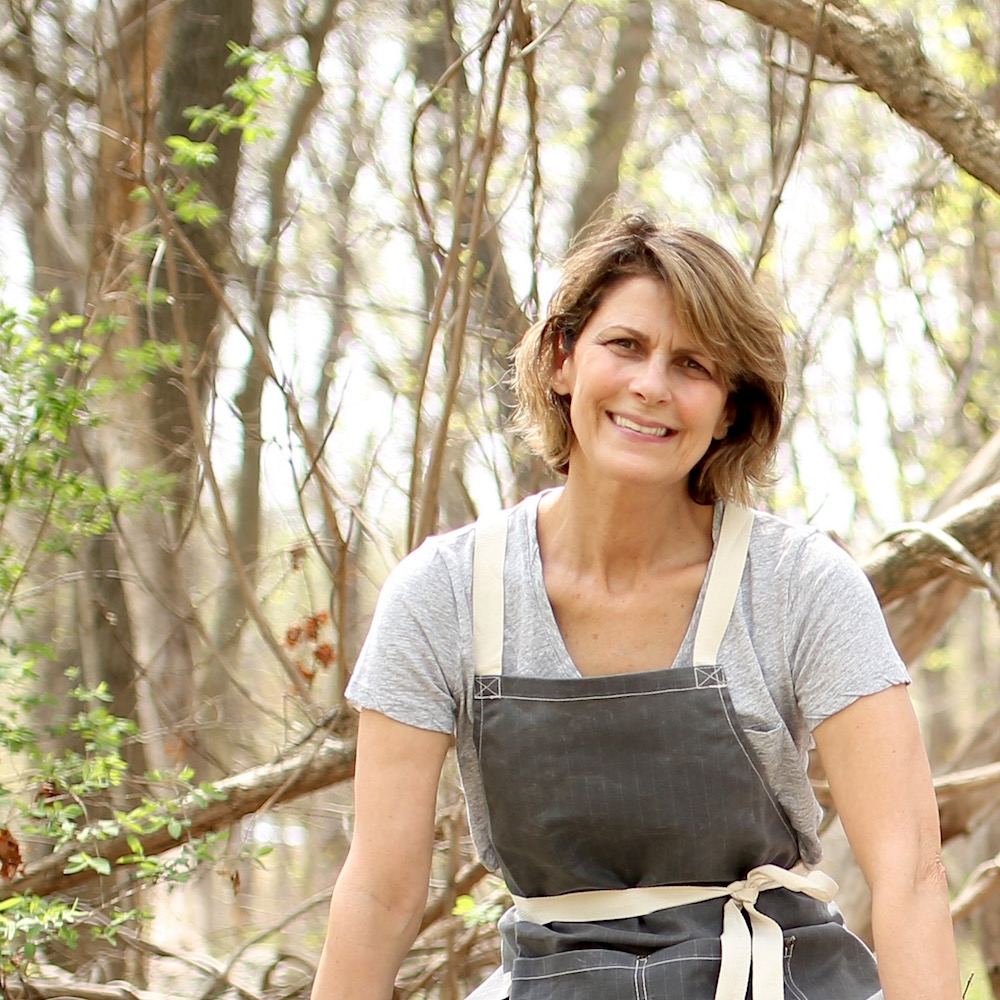
Marlene Adelmann: Because I am a facilitator of herbal education, my books, my team here at the Herbal Academy, and my computer are my most used tools of the trade these days. However, I can’t imagine not having the workspace that I have created for myself and others with wire baskets full of glass jars and bottles readied for the next herbal production project. My fresh herbs and row upon row of dried herbs. I love every implement that belongs on the herbalist’s shelf. Our sturdy mesh strainers, funnels, blocks of beeswax, mortar and pestles, gauzy cheesecloth, beautiful Boston rounds, blue and Spanish glass bottles, droppers and spoons—it’s all so beautiful to me!
Erika Galentin: The herbs themselves! Ok, so I am totally in love with my Vitamix as well as with my KitchenAid food processor. I make essentially all of the extracts in my dispensary, and these two tools have made my life so much easier. I use the Vitamix to powder herbs, whether for infusions or decoctions or for percolations. The food processor has significantly cut down on my chopping time of fresh herbs for tinctures and glycerites—it also exposes way more surface area for extraction than just regular chopping. I also love my percolation cone and stand, especially when I need to make tinctures for clients but can’t wait the full six weeks for maceration. I have also just become the enchanted owner of a 10 liter alembic copper still for distillation of hydrosols…this is where magic, alchemy, and science blend together so beautifully.
Meagan Visser: Oh, my! I have a lot of tools that I use! It really just depending on what I’m working on, but if I had to narrow it down to three or four of my favorites, I’d choose the following. First, I use The Herbarium and Matthew Wood’s and Dr. James Green’s materia medica books constantly. I’m always needing to look up a piece of information about a plant, and these resources make finding that information so quick and easy! Next would be canning jars (Mason, Ball, or Kerr brands). I have them in so many sizes and use them for everything from storing dried herbs to infusing tinctures and oils to weighing herbs in them on my kitchen scale. Then, I’d have to say that yellow beeswax, a variety of vegetable oils, and several kinds of alcohol are my next favorite tools. I love taking raw herbs and making a variety of homemade herbal products with them. There’s something so empowering about having that kind of knowledge in your head and watching it become something useful over the course of a few hours or a few weeks. Lastly, my computer would have to be one of my favorite tools. Not only does it allow me to learn more about herbs and to make a living with them, but it helps me to connect with peers, mentor others, and share my knowledge through my writing.
3. What are your go-to herbal book recommendations?
Ayo Ngozi: This is hard as there are so many good ones! My go-tos from modern herbalists are Matthew Woods’ The Earthwise Herbal, both volumes; Bone & Mills Principles and Practice of Phytotherapy; and maybe Aviva Romm’s Botanical Medicine for Women’s Health. Technically, it’s not an herbal book, but I love Paul Pitchford’s Healing with Whole Foods. I’ve been rereading the Ayurvedic practitioner Maya Tiwari—her book Women’s Power to Heal is fantastic.

Angela Justis: For beginners and really anyone looking for inspiration, I love any book by Rosemary Gladstar. She is very down to earth and inspiring to read. She was the first herbalist I ever encountered, and after only reading for about ten minutes, I was completely hooked! I also really love Flower Power by Anne McIntyre, who happens to be one of our educators here at the Academy. This book is filled with incredibly beautiful pictures of flowers and includes lovely monographs on each flowering herb covered. Plus, there is an extremely useful index in the back of the book. Another favorite is Medical Herbalism by David Hoffmann. This book is wonderfully comprehensive in its scope!
Jane Metzger: I love Matthew Wood’s books because they give a really intuitive sense of an herb’s energetics and actions based on historical use and the author’s deep experience and insights. Medical Herbalism by David Hoffmann is authoritative and comprehensive so that is one I am always pulling off the bookshelf. Plant Healer Magazine is a really amazing resource and helps me feel connected to the herbal community. I am called toward folk herbalism and enjoyed the insights of Robin Rose Bennett in The Gift of Healing Herbs. I also love science and marveled at the connections Guido Masé made in his book The Wild Medicine Solution. And Botany in a Day by Thomas Elpel is a great place to start for the study of botany and plant families!
Marlene Adelmann: This is a tough one because I have a library of herbal books, and I love each and every one—the serious, the stunningly beautiful, and the delicious tea sipper reads. My go-to would be David Hoffmann’s Medical Herbalism as well as Principles and Practice of Phytotherapy by Kerry Bones and Simon Mills. I also love Matthew Wood‘s work. I have just started reading Braiding Sweetgrass by Robin Wall Kimmerer which looks at science and the ancient knowledge of the Indigenous people. Lastly, a new page turner on the shelf is Body into Balance by Maria Noel Groves; this is a gorgeous book with chapters laid out by body systems—easy to read and beautifully put together. A nice book for beginner herbalists that is nestled on my bookshelf is The Herbalist’s Way by Nancy and Michael Phillips.
Erika Galentin: I rely heavily on late 19th through early 20th century texts from the Thomsonian, Eclectic, and Physiomedical movements. Many of these text are available online through the National Library of Medicine digital collection (https://collections.nlm.nih.gov/), Henriette Cress’ website, and the late Michael Moore’s website. One of my favorite introductory to intermediate books is the Essential Book of Herbal Medicine by Simon Mills. In fact, I would suggest anyone interested in becoming a clinical practitioner read that book from cover to cover… maybe multiple times. The Principles and Practice of Phytotherapy by Kerry Bone and Simon Mills is also an essential reading for individuals looking to become clinical practitioners.
Meagan Visser: When it comes to herbal research and reference books, some of my most-used books are James Green’s The Herbal Medicine Maker’s Handbook and Matthew Wood’s The Earthwise Herbal—both the Old World and New World books. I also find myself referring to David Hoffman’s Medical Herbalism and The Botanical Safety Handbook quite often as well. As far as fun books filled with personal stories and herbal recipes, I would have to say I enjoy Rosemary Gladstar’s Herbal Recipes for Vibrant Health because it covers a wide variety of topics and age groups as well as Judith Berger’s Herbal Rituals and Linda Ours Rago’s Blackberry Cove Herbal, simply because I love how these authors move through harvesting herbs through the seasons.
4. Why did you become an herbalist?
Ayo Ngozi: This is a second career for me, and honestly it was the only thing I was interested in doing for the rest of my life! I love that the well of herbalism is endless, that one can learn something new every single day, and deepen and strengthen practice daily as well.
Angela Justis: I have always been called to the beauty and wonder of plants. Our family garden was an important part of our life when I was growing up, and as a young child, I had the good fortune of seeing all things growing from the richness of the soil. When I got older, I was introduced to Rosemary Gladstar when a friend shared an excerpt from her about using herbs for beauty. As a teenager looking for ways to care well for myself, I couldn’t believe that plants could be used to create beautiful baths, masks, hair rinses, and more! I felt that old magic from my childhood rekindled brightly, and I began creating products for myself and friends. From there my interest just grew and grew, and now I use herbs everyday in foods and drinks, herbal preparations to support health and well-being, and yes, in body care!
Jane Metzger: I think the question is why I didn’t become an herbalist sooner! This is actually my second career. The truth is, no matter what I did or where I lived, I kept coming back to my love for plants and herbs—the books I chose to read, the way I spent my free time, the hobbies I chose, the way I nourished and cared for my family, and at a certain point, following my passion became an obvious choice. My formal studies showed me how herbalism and ecological stewardship, which is another passion of mine, can walk hand-in-hand together. They also gave voice to the reason I was called to plants—connection. Being in relationship with plants helps root me here on Earth and connect me with the natural world, and in that way becomes a spiritual practice for me. And my work as an herbalist has allowed me to combine many of my loves—plants, deep ecology, gardening, writing, photography, self-sufficiency, and cooking.
Marlene Adelmann: I think I’ve always had a foot in the door, but it took me a very long time to identify what it was that I wanted to do with my interest. Becoming an herbalist was a natural progression from my culinary career.
Erika Galentin: I can not say for certain… I was guided here by curiosity, passion, and love for the plant kingdom. Or, as the infamous Aldo Leopold once wrote, “There are some who can live without wild things, and some who cannot.” Sometimes I feel as though the plants have chosen me, not the other way around. In everything I do, I choose to advocate for the plants—they are my dearest friends, my closest allies. I am a firm believer in celebrating the role humanity plays in the ecology of our landscapes and that our relationships with the natural world should be based upon reciprocity and exchange. Perhaps this is why I became an herbalist. It is an awesome way to connect people with the living, breathing, natural world.
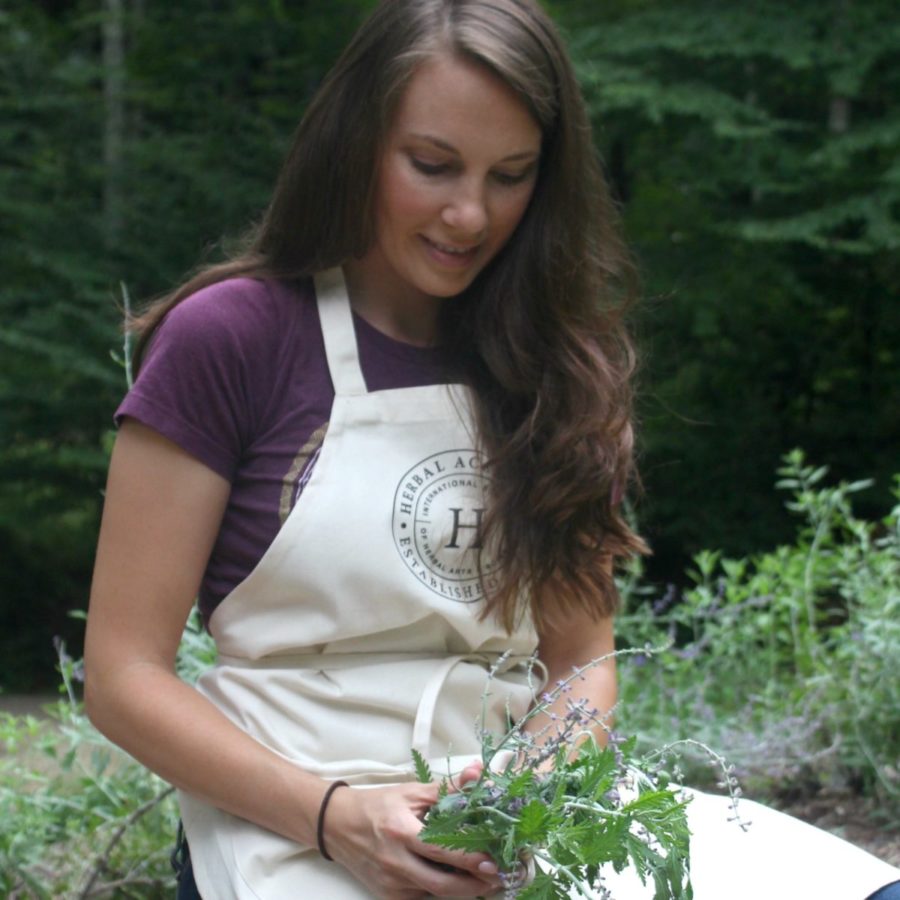
Meagan Visser: I became an herbalist because, as a registered nurse, I saw how many people were happy to simply take a pill to deal with uncomfortable symptoms instead of dealing with the root cause of their problem. I saw time and time again how many weren’t interested in living a healthy lifestyle in order to prevent the illnesses they faced, but instead, continued to do things that contributed to poor health. When I became pregnant with my first baby, I knew that I wanted to raise my child with a different mindset. I wanted to show him that we can and should take responsibility for our own health and that we can do it naturally. I wanted to teach him to maintain good health through a healthy diet and lifestyle and then to approach common issues with the help of herbs, if possible—saving the bigger issues for modern health care.
5. What is your advice for finding one’s herbal calling?
Ayo Ngozi: I would spend time talking to other herbalists because there are so many ways of doing this work and many ways that others can inspire our herbal practice!
Angela Justis: Follow what calls to you! There is no right or wrong way to be an herbalist. That is what is so lovely about this world and community we are all part of—as herbalists we each bring our own special piece to the table to share.
Jane Metzger: Herbalism is so diverse, be it the many historical traditions or the way each individual herbalist reflects their understanding of herbalism back to the world. Be open to these. Follow the ones that pique your interest. Take a variety of courses, read lots of books, and go to herbal conferences. You may find yourself drawn to a certain aspect of herbalism—maybe it is botany, Ayurveda, or plant spirits, or perhaps you get really excited about the local plants in your region or growing herbs. Maybe you geek out over phytochemistry! By exposing yourself to multiple courses, books, and other avenues of learning, you can get a taste for the way of being an herbalist that resonates with you. I am a firm believer in following your heart here—it will lead the way. Also keep in mind the other tools in your skillset and how they can complement and facilitate that way you express herbalism.
Marlene Adelmann: Experiment! Learn how to use herbs for your health. Perhaps integrate them into your daily life through teas, foods, and herbal preparations. Study the history of herbalism to give you some insights on how herbs have always played a role in health, nutrition, and well being. Grow a few herbs and get out into nature to identify and safely and respectfully forage herbs. Use your grown or foraged herbs in herbal preparations. There are many ways to practice in this field from self-care to clinical practice. At some point in your studies, you’ll be drawn to a certain aspect of herbalism, and there you will find the most compatible practice for you.
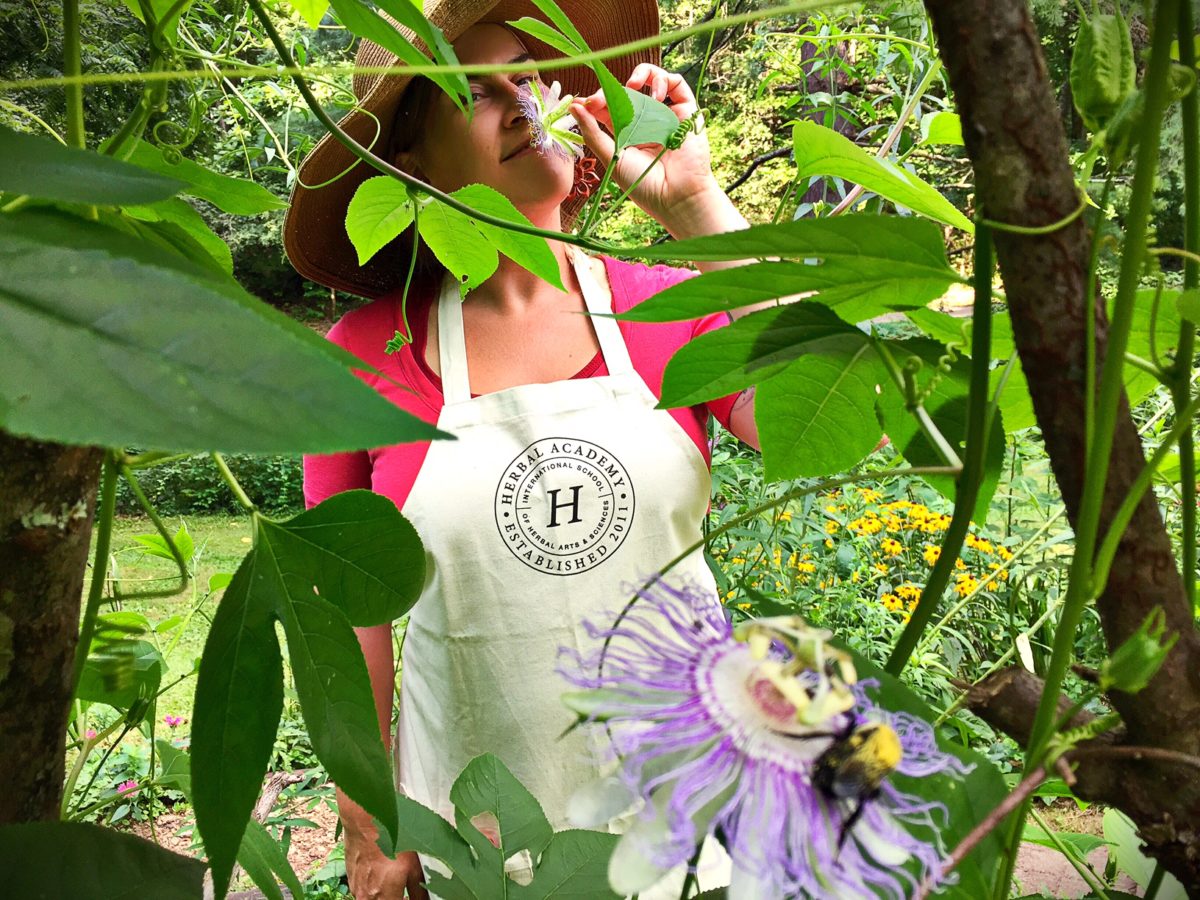
Erika Galentin: Stay true to your path of heart, even if it seems like the hardest path to follow. The path of the herbalist is not straightforward. It is bent and twisty and gruelling at times. It is, however, profoundly fulfilling and joyous. I will leave you with another quote, one that means so much to me as an herbalist, that I have it tattooed on my back: “For me, there is only the traveling on paths that have heart, whichever path has heart. It is there that I travel, and the only worthwhile challenge is to traverse its full length.” – Don Juan, The Teachings of Don Juan: A Yaqui Way of Knowledge by Carlos Castaneda (roughly translated from Spanish).
Meagan Visser: I believe that callings can change depending on seasons of life or personal circumstances, and for that reason, I think one of the best ways a person can find their current calling is to pursue a variety of paths and never stop trying new things in order to see what speaks to them or sparks their interest. If something stands out, stay on that path for awhile in order to see if it’s something worth continuing. If it’s not, try something else. The possibilities are endless!
So what do you think? Are you inspired to dig deeper into the world of herbalism and see where it takes you?
If so, check out our free Herbal Journey Guide. This guide is designed to help you map out your herbal path or refresh it if you’ve been traveling it for a while.
Also, don’t forget that the Herbal Academy is having our annual Back To School sale right now, and we have all of our courses and paths discounted 15% until September 14th!
Click here to check out our course options and see if we’re the right herbal school for you.
